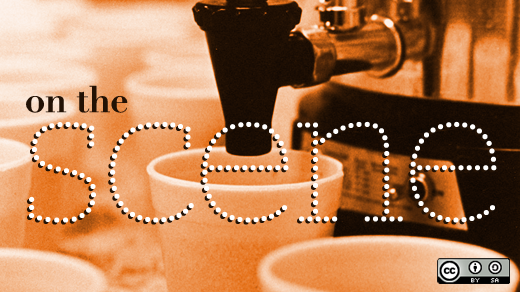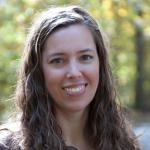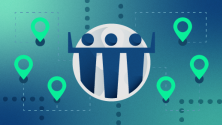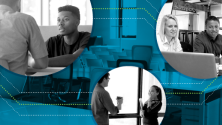The Open World Forum began this morning in Paris with several keynotes that were universally optimistic about the future of open source and the importance of openness.
Jean-Louis Missika, the deputy mayor of Paris in charge of research, innovation and universities, gave his vision of a more democratic world where information is shared more freely. He spoke at length about how openness and open innovation are changing the city of Paris.
For example, the city launched a call for projects surrounding urban equipment, like garbage bins and street lighting, to see how open innovation could change the landscape.
The city also expects to gain a lot from its open data policy, launched last year. Missika reported that they've had good progress and believe that open data is essential. They've been surprised to see both the quantity and variety of uses of the city's databases. By providing previously closed data to everyone, from statistics to technical data, the citizens of Paris have seen more transparency in their communities and benefited from the resulting research.
As an example of the success of open data, next week Parisians will have a new application that helps them find the nearest letterbox or parking space and that disabled people can use to calculate best paths.
This all represents a major evolution for local authorities. Missika concluded by noting that Paris' citizens are now also producers and beta testers--in short, co-producers with city administrators who are entitled to play a role in their open city in an increasingly open world.
Missika was followed by several other speakers, all with similar messages of promise for the future of openness, both in corporations and communities.
Philippe Montargès, president of the Open World Forum and co-founder and co-CEO of Alterway, described this future as "a continuous process of creative disruption." He explained that the FOSS model is affirming itself as the invisible driver behind the digital revolution.
Dominique Vernay, president of Systematic Innovation Cluster, expanded on that by saying that openness is important, and not just to technology. Much more broadly, he believes that what's at stake is ideas connected to ethics, and simply put, that open is the future. (This is also the theme of the conference.)
Jeffrey Hammond of Forrester, Simon Phipps of the Open Source Initiative, and Dirk Riehle from Friedrich-Alexander-University of Erlangen-Nürnberg joined to comment on the state of the free and open source world.
Hammond focused on business, noting that the good news is that open source doesn't have to fight the battle of ignorance anymore. In the last year, Forrester's research has seen as much as a 13% increase in awareness among CIOs and VPs about the use of open source infrastructure tools in their development activities. But that also creates the potential problem of executives wanting to control the innovation.
Phipps began to applause with only three words: "Liberté, Égalité, Fraternité." He pointed out that this national motto of France also describes the principles--liberty, equality, and community--that are the basis of open source. He believes we're currently seeing a trend away from the focus on business concerns and towards returning to the basic principle of open community, giving the example of the newly formed Document Foundation.
I'll continue to post from around the Open World Forum. If you're here, I'd love to meet you. If you're not, you can watch some of the event online at the Open World Forum website.







Comments are closed.